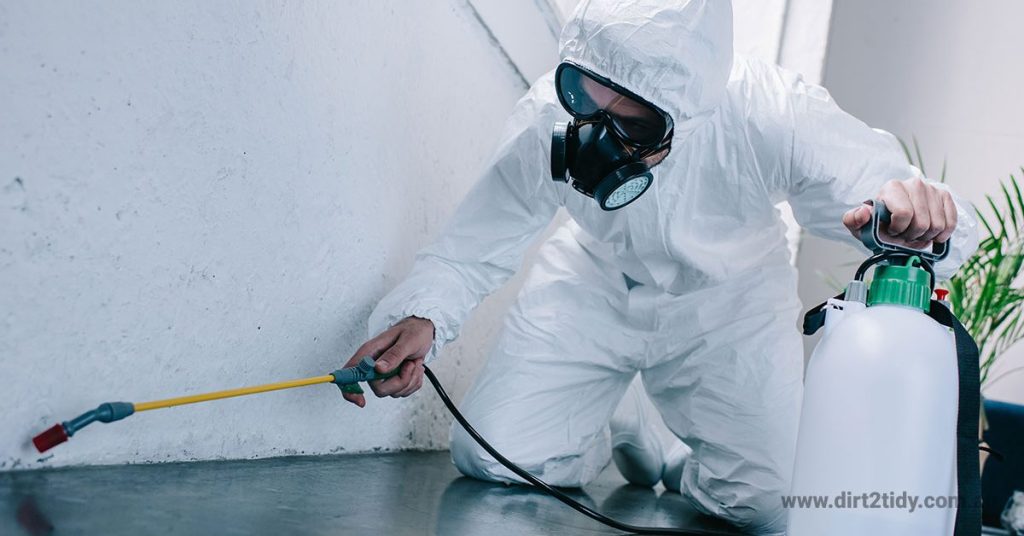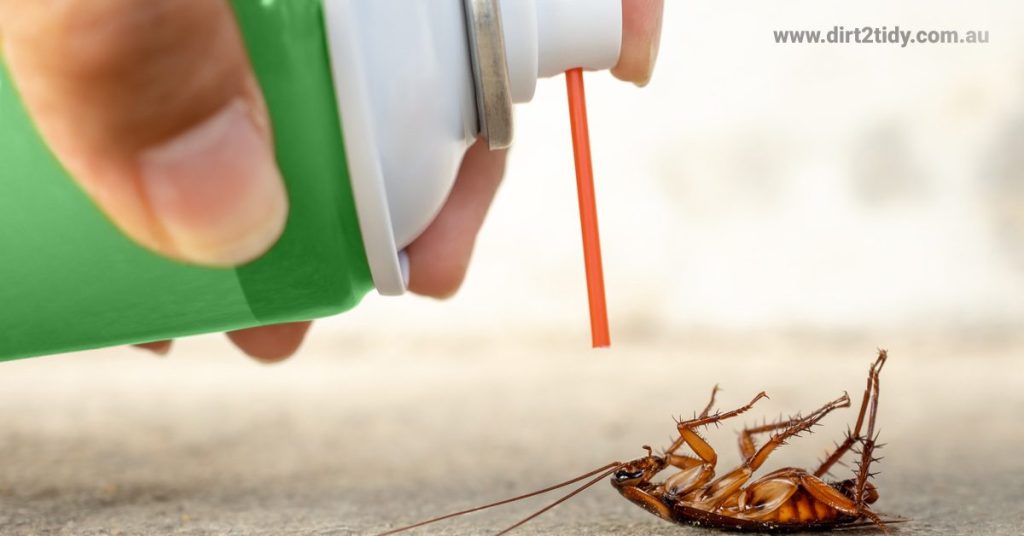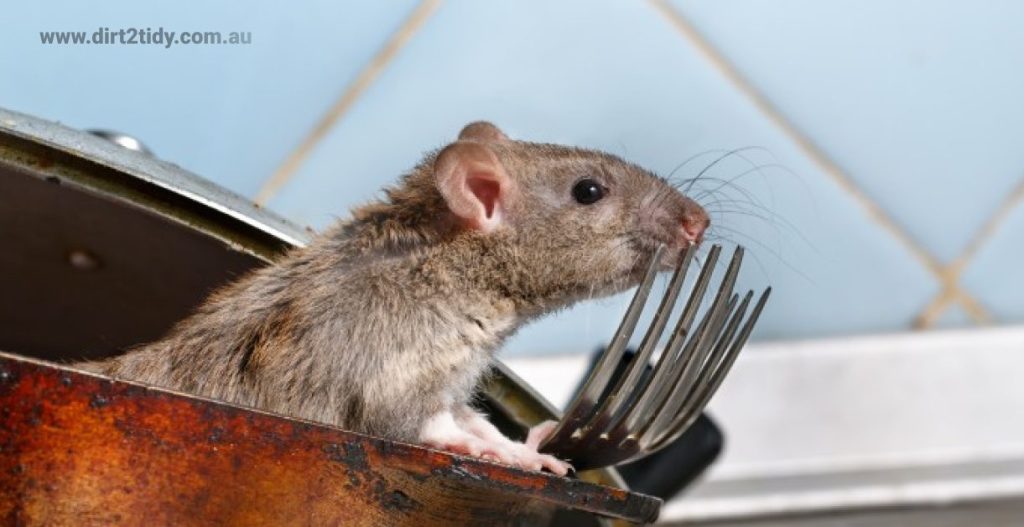Table of Contents
Treatments for pest control have been shown to eliminate all kinds of unwelcome guests from the home, including ants, possums, fleas, and more. Hire a pest control expert if you have a pest problem and get a monthly visit if you have bed bug treatments.
What is the duration of pest control last?
The typical duration of light pest management is 3 weeks or less, but the duration of intensive pest control might reach 90 days or longer with general pest control treatment. The precise amount of time may still fluctuate depending on several factors.
Key Factors Influencing Pest Control Duration:
- Type of Pest: Different pests require varied approaches, affecting how long the control measures remain effective. For example, treatments for termites may last longer than those for common household ants.
- Severity of Infestation: A minor pest issue may be resolved quickly, while a severe infestation might necessitate prolonged treatment, extending the duration significantly.
- Methods Used: The choice between insecticides and rodenticides, which come in either liquid or solid form, also plays a critical role. Each method has its own timeline for effectiveness.
Insecticides and rodenticides are the two most commonly used forms of pest control measures. These pest control methods come in either liquid or solid form, adding another layer of consideration when predicting the duration of effectiveness.
What Types of Pests Can Be Managed with Pest Control Services?
When it comes to pest control, a wide range of unwanted critters can be effectively managed. Professional services are equipped to tackle various pests that might invade your home or business, ensuring a safe and comfortable environment.
Flying Insects
Flying insects can be particularly bothersome due to their mobility. Pest control services can help manage:
- Wasps and Bees: Known for their painful stings and potential allergies.
- Flies and Mosquitoes: Common nuisances that can spread diseases.
Crawling Insects
Crawling insects often enter spaces where they quickly multiply. Common targets include:
- Termites and Spiders: Termites cause structural damage, while spiders are unwelcome for many.
- Cockroaches and Ants: Both are known for food contamination and spreading bacteria.
Birds and Rodents
These pests not only cause destruction but also pose health risks. Services can control:
- Rats and Mice: Infamous for chewing through wires and spreading diseases.
- Birds: Can lead to property damage and harbor diseases transferable to humans.
Effective pest control acts as a safeguard against these intruders, providing peace of mind and protecting both health and property. Choose services that offer comprehensive solutions tailored to the specific pests in your area.
First, insecticides
Ants, cockroaches, termites, and other insects are among the many species of insects that insecticides target. How long does insect-specific pest control last? The method of pest control treatment affects the effectiveness of the pesticides for each kind of insect:
Ants quickly perish from liquid pest control treatments from pest control company. The finest liquid pest control treatments are those that contain permethrin or deltamethrin as active components. Aside from their effectiveness in eliminating ants, these two substances are also recognized to be safe for use by pregnant women and persons with asthma.
However, it’s advisable to replace the liquid pest control treatment with a solid one if ants are still living after two weeks. Because the ants may transport the solid type of pest control medication to their nest and infect others, it often takes longer.
You may also like to read: Carpet cleaning and pest control are part of vacate cleaning?
Waiting three weeks will guarantee that the solid-form pest control treatment is effective from pest control technicians. However, it is better to locate their nest and apply a very poisonous liquid pest control treatment for an immediate death if the ants are still living.
It’s best to engage a professional pest control specialist if you can’t find the ant nest or if it’s hidden inside the walls. The majority of pest control businesses employ up to 6-week-long regular pest control treatments.
Liquid, gel, and solid solutions are available for cockroach pest control. The wonderful thing about these pest control methods is that they have the potential to influence additional cockroaches, even through a secondary transmission. Any cockroach that comes in contact with the infected cockroach’s saliva, faces, or corpse will become infected when it consumes the pest control treatment.

What is the duration of cockroach pest control last?
This insect control procedure typically lasts six weeks. Call your pest control professional back if cockroaches are still there and active, or find a new one who also provides heat treatment services. This chemical-free method of pest management is effective against cockroaches of all life stages. Even though the heat treatment might last up to 120 days, it will need to be repeated often.
Treatments for termites are available in liquid, solid, and powder form. You must check on it every four weeks if you apply a solid or powder pest control solution.
Check on the bait every four or twelve weeks if you’re using solid or power-form pest control solutions. While it can take some time, you can be confident that your home will be termite-free for a full year if you do this. Termites may not be quickly killed by liquid-formed pest control treatments, but the good news is that they can infect other termites through direct touch and live for up to five years.

Rat poisons
The rodenticides are solid and are frequently used in conjunction with baits. The products that contain second-generation anti-coagulants, such as Brodifacoum, Bromodialone, Difenacoum, and Difethialone, are the finest rodenticides to use.
Rodents are killed by these components after just one feeding because of their strong effect on them. However, first-generation anticoagulants like Warfarin, Chlorophacinone, and Diphacinone are still an option.
The number of rodents you have in your house and the location where you put them will determine how long they will survive. You need to replenish it every 12 hours, or every two days if you put it near the rodents’ primary entrance.
The sole drawback of rodenticides is that they can also hurt pets and other wildlife. You must put it somewhere out of reach of pets and other wildlife if you don’t want them to get hurt. Likewise, dispose of deceased rats right away. This is so that any animals that consume the poisoned rodent will also get poisoned.

It is advised to hire a professional pest control specialist if you are unsure of the precise location of the rodents in your home. They are equipped and have the experience to find the rodents’ primary habitat. Additionally, they employ a specialized chemical pest control method that may kill all rodents with a single spray. The fact that this pest control method only lasts a short while is its only drawback.
Why is Pest Control an Ongoing Process?
Pest control isn’t just a quick fix; it requires continuous effort to be truly effective. Here’s why:
- Sanitation and Hygiene: Maintaining a clean environment is crucial in ensuring pests don’t find attractive breeding grounds. Regular cleaning prevents conditions that invite pests in the first place.
- Consistent Monitoring: Regular inspections are essential. Identifying and addressing pest issues early can prevent large infestations from developing.
- Securing Entry Points: Pests often find ways into properties through small openings. Sealing these vulnerabilities is a continuous task because wear and tear or new gaps can appear over time.
Reducing the risk of pest invasions involves more than mere extermination—it’s about prevention and maintenance. Thus, approaching pest control as an ongoing process helps maintain a pest-free environment long-term.
You may also like to read: What are the types of disinfectants?
Always be sure to plug all the holes in your property, regardless of the rodent pest control method you choose. This prevents rats from ever getting onto your property and ensures it is completely eradicated.
Treatment for pest management is successful in getting rid of the pest. Sadly, it may also be harmful to a person’s health. Always follow the label directions to make sure your family is safe. If there are any label warnings (caution, keep out of reach of minors, and deadly poison), you must read these as well as the toxicity level (slight, moderate, or high).
Precautions to Consider:
- Vacate the Property: In some cases, you may need to leave your home for a couple of days during the application of chemical pesticides. This reduces the risk of exposure to harmful substances.
- Protective Gear: Pest control contractors often wear masks to shield themselves from chemical hazards. If you’re involved in the process, consider wearing protective gear as well.
By understanding and acting on these precautions, you can better protect yourself and your family while effectively managing pest issues.
Understanding Baiting Systems in Pest Control
Baiting systems are a strategic approach in pest control designed to target specific pests such as ants, cockroaches, and rodents. These systems function by enticing pests with an appealing bait laced with a slow-acting insecticide or rodenticide.
How Baiting Systems Operate
- Attractive Bait: The bait is formulated to be irresistible to the target pests. Ants, for example, are drawn to sweet or protein-based baits, while rodents are tempted by food-grade bait.
- Gradual Effect: Once consumed, the toxin works slowly, allowing pests to return to their colony or nest. This enables the toxin to spread among other members of the pest population.
- Colony Impact: Because the toxin is engineered to be slow-acting, it infiltrates the entire pest community, resulting in a significant reduction or complete eradication over time.
Targeted Pests
- Ants: Baiting systems are particularly effective against ants as they naturally share food with their colony members.
- Cockroaches: These pests are also effectively managed with baits, which they often bring back to their nesting sites.
- Rodents: While rodent baits attract and eliminate mice and rats, it’s crucial that these baits are placed strategically to prevent accidental ingestion by non-target animals.
Why Choose Baiting Over Other Methods?
Compared to methods like spraying or fumigation, baiting systems provide a more localized and targeted approach. They are often lauded for their effectiveness over time, although the visible results may take several weeks. This method minimizes the spread of chemicals into the broader environment and reduces the need for repeated surface applications.
In conclusion, baiting systems are a potent tool in the arsenal of pest control strategies, offering a focused and efficient solution for long-term management of problem pests.



